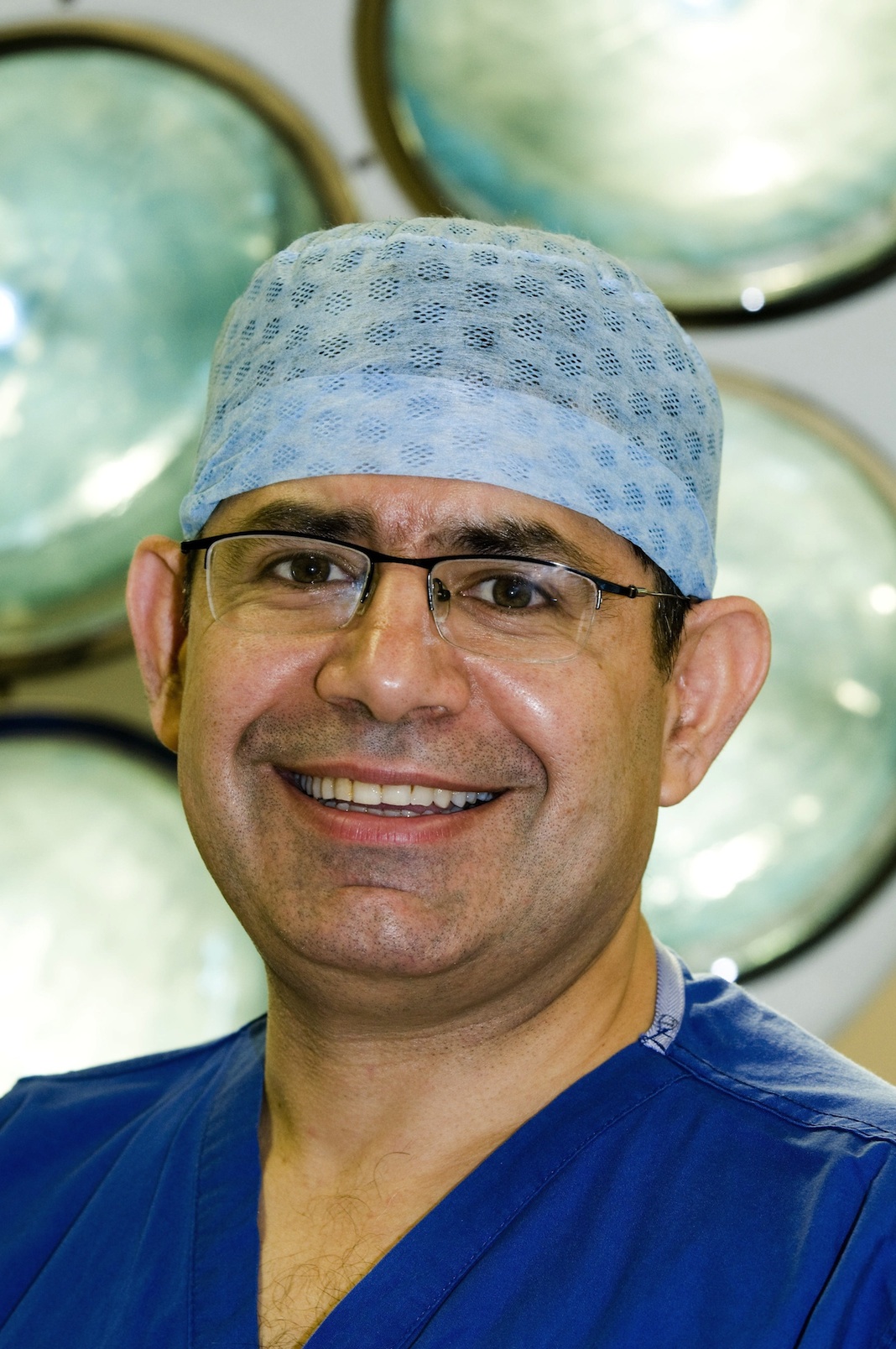A world-renowned breast cancer surgeon at the Royal Free London has worked with a team of experts to produce a cookbook specially designed for people living with breast cancer.
Professor Mohammed Keshtgar’s Breast Cancer Cookbook features more than 100 recipes aimed at helping people recovering from breast cancer, as well as those concerned about developing the disease.
The book looks to dispel the myths surrounding diet and cancer with recipes and dietary advice based on the latest medical and scientific research.
Professor Keshtgar said: “I wanted to provide recipes suitable for individuals who are concerned about the risk of developing breast cancer and for those who have had or are having treatment for breast cancer. We have sought to demystify issues around diet and breast cancer because this is an area in which there is some confusion.
“This book does not talk about any diet curing cancer. It is an aid for the readers towards healthy eating to help themselves to fight the disease or reduce the chance of cancer coming back.”
Professor Keshtgar, who pioneered the use of keyhole breast surgery and light therapy in cancer patients, started writing the book after patients approached him for advice on what to eat to aid them during treatment and recovery from breast cancer.
The surgeon teamed up with Dr Claire Robertson, a nutritionist and academic Dr Miriam Dwek, both from the University of Westminster, as well as Emily Jonzen, cookery writer, to create recipes to support the body’s immune system and help recovery.
The recipes include spring vegetable soup with quinoa, and pork tenderloin with celeriac, edamame beans and gremolata, as well as various healthy fruit and vegetable smoothies.
Professor Keshtgar, who is also professor of cancer surgery at University College London, said: “Diet is a very important factor during the cancer treatment process as it helps the body’s immune system and also helps the body repair itself, especially after surgery or during chemotherapy.
“We have given special consideration and advice to patients undergoing chemotherapy regarding their possible side effects and devised recipes that they can consider while undergoing such treatment.
“Healthy eating also helps reduce the risk of developing breast cancer. It is estimated that around 30% of cancers are influenced by five behavioural risk factors: diet, body mass index, lack of physical activity and tobacco and alcohol use.”
After starting treatment for breast cancer, Royal Free Hospital patient Julia Neal, 55, started looking for ways she could boost her own recovery.
 She said: “When you have this terrible diagnosis your first instinct is to think ‘what can I do to help myself?’ But there’s so much conflicting information out there. You Google stuff and you find one reputable site telling you to eat soya while another is telling you it’s the spawn of the devil.
She said: “When you have this terrible diagnosis your first instinct is to think ‘what can I do to help myself?’ But there’s so much conflicting information out there. You Google stuff and you find one reputable site telling you to eat soya while another is telling you it’s the spawn of the devil.
“I asked Professor Keshtgar what I should do and he said he was bringing his book out. It’s been really easy to incorporate the recipes and advice into my diet. It’s comforting to know that you are on the right track. The last thing anybody in my situation wants to be doing is worrying about whether the things you are eating are beneficial or harmful.”
The recipes have been well received by patients, and have even made their way into the Royal Free London’s hospital restaurants. To mark Breast Cancer Awareness Month in October, chefs at Barnet Hospital, Chase Farm Hospital and the Royal Free Hospital will offer dishes taken straight from the cookbook.
Professor Keshtgar said: “I am delighted that the Royal Free London has embraced this opportunity. The trust is at the forefront of promoting healthy eating and by including some of these recipes I hope it will help in paving the way to improving hospital food throughout the country.”
Image 1: Harissa lamb
Image 2: Professor Mohammed Keshtgar
ENDS
Notes to editors
Media contacts: daniel.obrien1@nhs.net or call 020 7371 7740
About the Royal Free London NHS Foundation Trust
The Royal Free began as a pioneering organisation and continues to play a leading role in the care of patients. Our mission is to provide world class expertise and local care. In the 21st century, the Royal Free London continues to lead improvements in healthcare.
The Royal Free London attracts patients from across the country and beyond to its specialist services in liver, kidney and bone marrow transplantation, haemophilia, renal, HIV, infectious diseases, plastic surgery, immunology, vascular surgery, cardiology, amyloidosis and scleroderma and we are a member of the academic health science partnership UCLPartners.
In July 2014 Barnet Hospital and Chase Farm Hospital became part of the Royal Free London.
 Translate
Translate